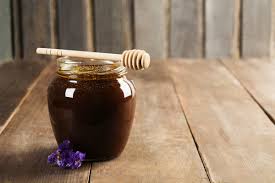
Charles Simic is of the camp that says poems, like characters in a novelist’s work, take on a life of their own minutes after written, quickly declaring independence from the poet-god that breathed life into their lungs.
It’s an expansive, capital-R Romantic notion, the type Dr. Frankenstein could relate to (if you forget, for a minute, that Dr. F’s “poem” was a monster hit with other lessons to teach).
Whether you believe your poems are independent states or not, it’s pretty to think so, and rather amusing, too. As evidence, you need only read Ellie Schoenfeld’s ode to other poets who, thanks to her imagination, take on lives of their own, too (“It’s…a-livvvvve!”).
Originally written in 2009 as part of her collection The Dark Honey: New and Used Poems, Schoenfeld’s poem, an ode to personification if ever there was one, was shared on yesterday’s Writer’s Almanac.
Let’s listen in here and see what poems (and rival poets) do when left to their own devices:
The Other Poet
by Ellie Schoenfeld
The poet explains exactly
what her poems are doing on a variety of levels.
I am jealously impressed.
My poems go places
but send no postcards––I have no idea
what they are doing. They do
whatever they want to.
I give them curfews
but they wake me in the middle
of the night, they interrupt meetings
and other situations where I have no time
for them. They hang on me
when I am on the phone.
They do not keep my secrets
and sometimes they lie.
They can be sullen and withdrawn
or explosively obscene.
I think my poems have problems with authority,
conduct disorders, attention deficit.
The other poet is like the parent
with the bumper sticker about their honor student
while I am speeding along
to get to the correctional facility
before visiting hours are over.
I try to give my poems direction.
They tell me they have cleaned their rooms
but we both know it’s not true.
After all these years of therapy
we still don’t understand each other.
I write a poem and think
“What the hell is that?!”
Humor is healthy, but humor popping the vitamins of truth can run circles around us. Rhomboids, too.
Still, if you cannot laugh at yourself, at your own obstinate writings, or at the whole danged microcosm called Poetry World (it runs by its own rules of physics, like your rogue poems), what business do you have filling white screens with briefly free verse?
I thought so.